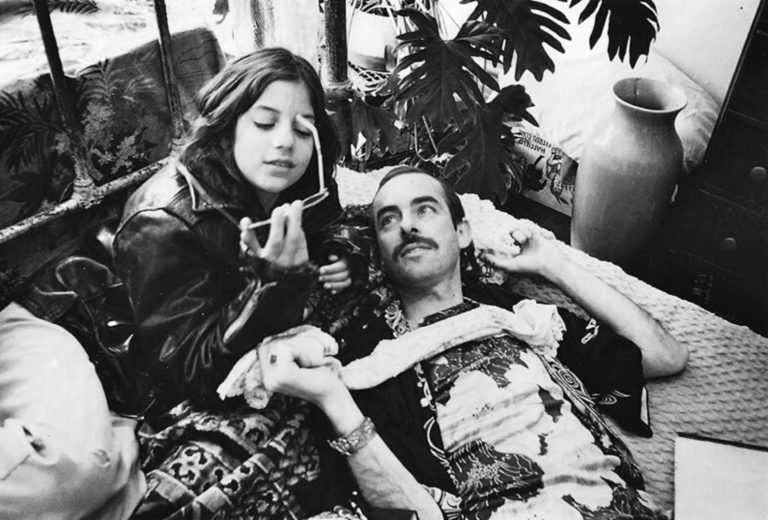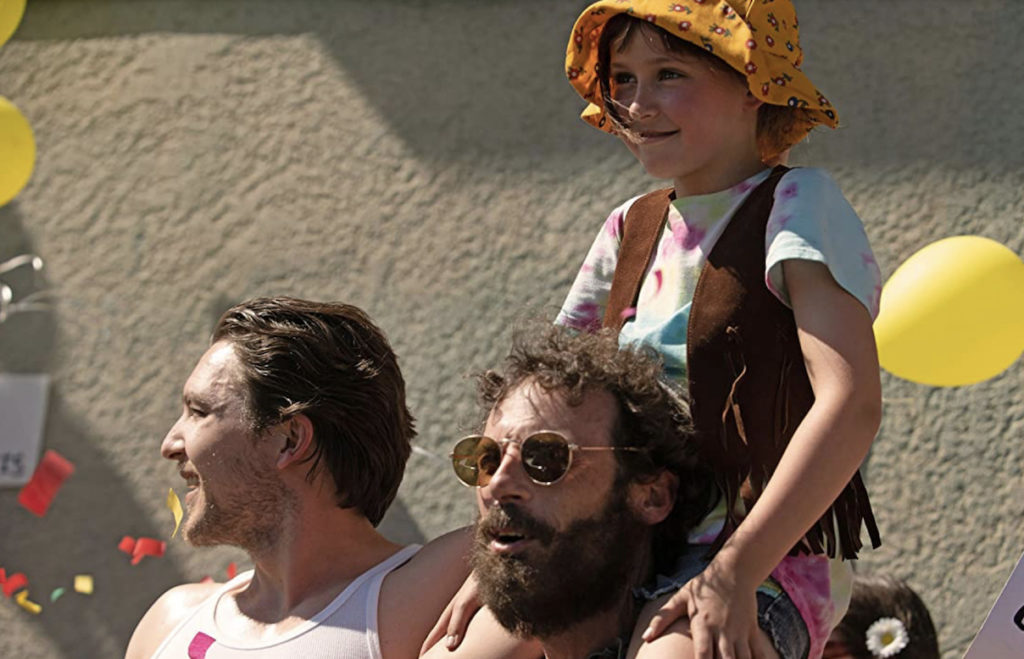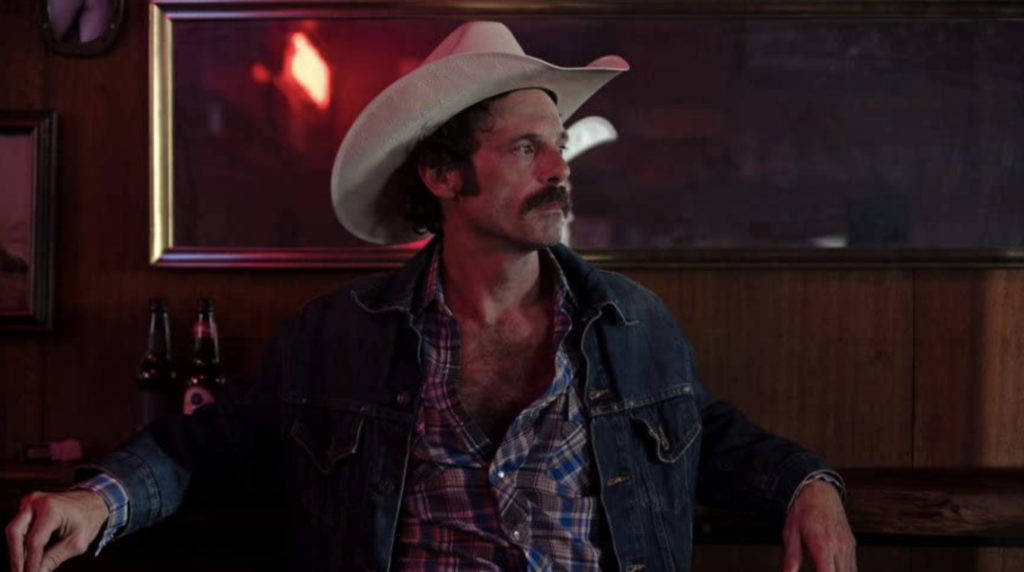
Sometimes the most emotionally fulfilling relationships, which shape a person’s entire life perspective and development, prove to be the ones that society deems to be unconventional. While society is often unwilling to accept the seemingly unconventional connections people can develop, some of the most emotionally captivating films are character-driven stories that chronicle and celebrate those bonds. The new drama, Fairyland, is one such feature that chronicles the dynamics between a family that was unique for its time, but is now instantly recognizable and relatable.
The movie is based on Alysia Abbott’s 2013 memoir, Fairyland: A Memoir of My Father, which chronicles her relationship with her father while she was growing up in San Francisco in the 1970s and ’80s. The screen adaptation was written, directed and produced by Andrew Durham in his feature film debut.
After the sudden and tragic death of her mother in the 1970s, Fairyland follows young Alysia [Nessa Doughert] as she’s uprooted by her father Steve [Scoot McNairy] in hopes of restarting his life. They move from the Midwest to San Francisco, where he develops his poetic and personal writing and begins to openly date men.
Steve’s bohemian lifestyle clashes with the expectations of parenthood from the outside world, Alysia’s maternal grandmother [Geena Davis] and the young girl herself, who occasionally wishes her father was more involved in her life. As she grows into a young woman on the cusp of adulthood [Emilia Jones], their bond and duty to each other is tested in painful and sudden ways.
Durham’s script brilliantly subverts expectations by not focusing on how in the 1970s and ’80s, chosen families within the queer community were beginning to thrive as the relationships between blood relatives were being severed by prejudice. Instead, the story grippingly chronicles how Alysia embraced loving and supporting her father during her upbringing, even when she wished he spent more time paying attention to her.

The drama’s story powerfully showcases Alysia’s eager and ready acceptance of counterculture as a young child, as she was in awe of her and her father’s new lifestyle when they first moved to California.
That excitement is sentimentally balanced with the melancholy the protagonist felt in her adolescence over the things she and Steve were never able to comfortably talk about, especially about her mother. Alysia then went from resenting how much emotional and literal independence he gave her as a teenager to appreciating all the sacrifices he made for her after she began college.
Despite that captivating balance, covering approximately 15 years of Alysia’s relationship with her father in a two-hour movie unfortunately made the transitions between the time periods in her life feel jarring and rushed. Fairyland gives an overall meager overview of Alysia and Steve’s connection with each other, as well as their relationship with their friends and relatives, in what seems to be a highlight reel of their bond.
There are also some topics that are introduced and discussed over a couple of scenes, such as Alysia’s grandmother wanting her to move back to the Midwest to attend school and be with the rest of their family, but are resolved in a rushed manner. Those issues had the potential to be a source of real tension between Alysia and Steve, but ultimately just prove to be stepping stones to their next conflict, which are introduced in abrupt transitions without preamble.
Despite the lack of story development at times throughout the script, McNairy and Jones exuded chemistry in their respective roles of Steve and Alysia in Fairyland. The duo stunningly captured the complex mix of loyalty and embarrassment that are a large driving force of any father-daughter relationship, especially as the protagonists grapple with the enduring pain of loss and celebration of love.

The distinct sentiments of the film’s young protagonist were also visually emphasized on screen through the brilliant cinematography of Greta Zozula. From the out-of-focus camera that mirrors Alysia’s confusion over her father’s behavior right after her mother’s death, to the sharper lens that captures her more-defined embarrassment of his lifestyle during her adolescence, Zozula’s enthrallingly captures the character’s emotional journey throughout the protagonist’s upbringing.
Sometimes a harrowing, unexpected tragedy, such as the untimely death of a parent or spouse, can ultimately shape a person’s entire life perspectives and other relationships in a way that society deems to be unconventional. Fairyland is an emotionally captivating, character-driven film that chronicles that change in a person’s life trajectory.
Despite the at-times rudimentary story development and connection between Alysia and Steve, Durham’s screen adaptation of Abbott’s memoir stunning explores the protagonist’s ready adoption of counterculture as a young child, which leads into apprehension in her adolescence. Combined with McNairy and Jones’ natural chemistry and Zozula’s stunning cinematography that reflect the protagonist’s views and feelings, Fairyland is a stellar coming-of-age family drama that importantly delves into American counterculture.
Grade: B+
Fairyland is having its world premiere in the Premieres section at the 2023 Sundance Film Festival.

